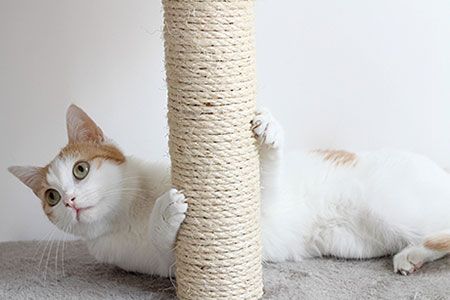We went no-declaw. You can too.
We looked at the evidence in our own practice and took a whole-team (and client-education) approach to making the big change to stop performing declaws.

We're not cutting those claws off, kitties ... well, maybe a trim, but that's IT. (Rossella/Adobe Stock)We made the decision several years ago to no longer offer feline declaws-something that affected the entire practice. It included the initial client communications (by phone or in person), a cohesive approach to care with an educated and driven team, monitoring of any financial repercussions, and being ready for any pushback from clients or the community at large. We knew the decision would be far reaching.
To prepare, team members gathered information from over the years: patient medical records, behavior documentation and radiographs. We could no longer deny both the short- and long-term effects for the feline patients.
Thanks to all this teamwork, I made the decision with confidence to end declaws. We focused on team education as well as positive and empowering client education, while ensuring we were supporting felines (clawed and declawed) along with the pet parents without judgment.
The result has been a team of employees who appreciate that their voice counts and see that we have a culture where medical decisions are careful and ethical. Financially, we have continued to grow. Almost four years later, we're still as passionate and feel just as good about the change. We educate pet owners daily on alternatives to declawing, and our feline compliance and patient profiles look much stronger. Our clients are some of the biggest fans or our no-declaw culture, and we give much of the credit to them for joining us in advocating.
It's been a wonderful connection of trust and ethics.
Amy Zellweger is practice administrator at Wixom and Waterford Family Pet Practice in those two towns in Michigan. She is a finalist in the 2018 dvm360/VHMA Practice Manager of the Year contest.